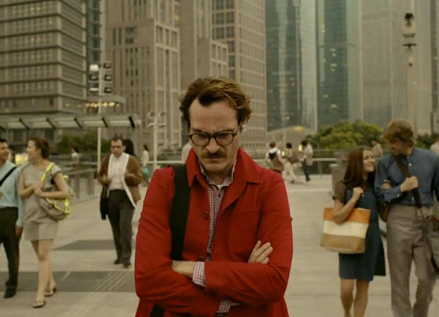
“NAPOLEON” My rating: C (In theaters)
158 minutes | MPAA rating: R
Like Dracula, Sherlock Holmes and any number of Shakespearean characters, Napoleon Bonaparte is one of those figures ever ripe for fresh cinematic reinterpretation.
I only wish I knew what incarnation director Ridley Scott and leading man Joaquin Phoenix were going for in their big, noisy, not-very-interesting “Napoleon.”
This is less viable drama than a 2 1/2-hour illustrated history lesson. The most memorable moments are several battle scenes that depict the grandeur/horror of Napoleonic-era warfare without ever evoking a genuine emotional response.
As for the drama, it centers almost exclusively on the relationship of Napoleon (Phoenix) and his Empress Josephine (Vanessa Kirby). Indeed, David Scarpa’s screenplay is essentially a two-hander. Virtually every other character (among them heavy hitters like Robespierre, Talleyrand, the Duke of Wellington and assorted European royalty) has been reduced to walk-on status.
So it’s a love story…sorta.
The film begins with the French Revolution and is basically a series of highlights of the Napoleonic legend, sometimes jumping years between scenes.
Phoenix’s Napoleon presents as a socially inept clod who just happens to be a military genius. He is bereft of charm or a sense of humor. Early on I found myself wondering if we were supposed to regard this Napoleon as being on the autism spectrum.
We see our protagonist on various military campaigns (Egypt, Austria, Russia) where he wins the hearts of his troops in spite of his personality (as long as he keeps producing victories he’s their guy). We see Napoleon use his grapeshot-loaded artillery to quell an urban uprising of Royalists, turning a crowd of protesting Parisians into so many mounds of ground round.
His military prowess gives him a foothold in the new Revolutionary government, first as one of three consuls leading France and then as emperor.

Vanessa Kirby, Joaquin Phoenix
Except that there’s little in Phoenix’s performance to suggest why anybody would even consider Napoleon as emperor material. He’s kind of a doofus and almost seems to have lucked into his imperial status.
Maybe the film is meant to be a Trumpian allegory about a numbnuts who ends up running a country. But that suggests a sense of satire found nowhere in the Scott canon.
Whatever sparks this “Napoleon” strikes come from the collision of our man with Josephine.
When we first see Kirby in the role she wears her hair in a sort of pixie cut (I’m guessing the look was the result of Josephine’s long imprisonment after her husband went to the guillotine) and exudes a feral feline sexuality.
You can see why the ham-fisted Nappie is attracted, though initially she appears unimpressed by his jackrabbit lovemaking technique. In fact, while he’s off fighting the Republic’s enemies Josephine is messing around with other fellas.

Vanessa Kirby
But over time they become a codependent team who trade insults as a prelude to copulation. Only problem is, Josephine is unable to give her emperor a son. But even after their divorce and Napoleon’s marriage to a more fertile female (I think there’s only one shot of this second wife in the whole picture) he continues to visit his original squeeze at the country estate to which she has been exiled.
“I wish I could quit you” might well be their motto.
That Phoenix is one of our finest actors isn’t up for debate. But here he can’t seem to wrap his head around his character, and as a result we’re all left in the dark.
Was Napoleon a power-hungry tyrant? Or was he devoted heart and soul to his country? What kind of ruler was he? (The film offers not a clue.)
Did he have any hobbies? Favorite foods? I’m grasping at straws here.
Like “The Duellists,” Scott’s first film and also set in the Napoleon Wars, this latest effort is an impressive physical recreation of a time and place. That sense is reinforced by a score made up almost exclusively of period music.
But the duties of physically creating the film seem to have left Scott no time to contemplate what he wants to say. This director has never exhibited a strong individual style, but here the absence of a point of view is maddening.
And why oh why has cinematographer Dariusz Wolski opted for a visual style so dimly lit that even scenes set in bright sunshine seem gray? There are no bright colors — at least in that regard the visual palette reflects the general joylessness of the overall enterprise.
| Robert W. Butler





